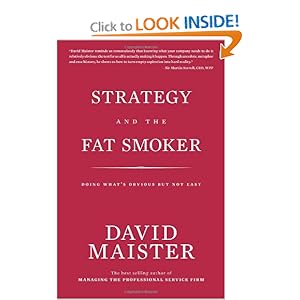I am indebted to my friends at the Enterprise Irregulars, for the links in this piece. The IE’s, if you didn’t know, are a rag tag group of certified smarties who know all kinds of stuff about the greater tech industry and I am flattered that they let me hang out with them.
The aftermath of the verdict from the patent infringement lawsuit between Apple and Samsung initially generated more heat than light. But the last few days have made up for the light that failed to emanate from the weekend’s id fest and Armageddon prediction Internet confab.
Reuters is running an interesting story about Apple CEO Tim Cook and Larry Page of Google keeping the hotline open — you really need to be a child of the 1960’s to fully appreciate this metaphor. Suffice it to say that it is the origin of the little red phone. But also, there was this really interesting post at ZDNet by Jason Perlow about Samsung and Google’s collective need for a new dress.
I particularly recommend Perlow’s article because, while the idea of product dress might seem weird to some people — especially those who take issue with the look and feel aspects of the Apple suit — it might interest you to know that product dress is a legal term.
Without giving away Perlow’s point, let’s just make the observation that the classic Coke Bottle, which has nothing to do with how the stuff tastes, is part of Coke’s dress and its IP, as much as its secret recipe. Only Coke has Coke Bottles, for a good reason. So go read that article.
My point here, other than giving a shout out to the IE’s and trying to enlighten others, is that Apple might have, at least momentarily, hit on the only look and feel for mobile devices that will ever be widely accepted. Tapping, swiping, pinching — things that come natural not only to the members of our Genus but also our Family and, who knows, maybe even our Order — might be so hardwired into our beings that coming up with an alternative might be a waste of time. Holy $%^& Batman that might mean that Apple could end up owning the mobile UI and someday soon be in a position to make a few pennies on every Samsung or HTC device running Andriod for ever.
Believe it or not, such an outcome would not be unique in the annals of business or manufacturing. It might have something to do with cross licensing (I know, but don’t confuse it with dressing mentioned above). That’s when more than one company asserts ownership rights to an invention that each came up with the old fashioned way (you know, R&D?). But rather than fighting about it for years, the two (or more) companies come to terms, some money and possibly other patents are traded and then it’s back to business.
The best example of this is the car industry. Car radios, V-8 engines, automatic transmissions, how heating and air conditioning systems work, how the controls are set up and lots more, all have patents and if all cars look more or less alike in some basic features and functions, it might be because their makers went to the same patent swap meet. Yes, patents expire so don’t go looking to fund the fifth generation grand kids college even if you have lot of patents.
So this brings us back to Larry and Tim and the hotline. May we be informal for a moment and simply refer to each other using first names like they do in the music biz (Elvis, John, Paul, George, and especially Ringo; but also Bono, Sting, Eric and many others)? So, Larry bought Motorola (early car radio patents, BTW) at least in part for its stable of patents to ward off just the kind of suit that Tim’s company is making famous in the mobile industry (Tim should file a patent! hahaha!). And Larry, Tim and their minions are keeping the lines of communication open as they say.
What are the odds that the verdict put the discussions into high gear and that there’s an informal-formal patent swap meet happening out in the Valley between these principals? Nothing would surprise me but I think that if both sides remain reasonable and use their inside voices and big words, that there will be an announcement in the not too distant future that they’ve struck a deal.
If so, the deal would create the stack of the decade. Just as Wintel described a stack of Windows OS and Intel chips that made the personal computer; or as LAMP stands for Linux, Apache, MySQL and PHP for cloud application servers, some standard that combines Mobile/Google/Android/Motorola/Apple might emerge from all this chaos for mobile devices.
Let’s see, MOGAM? MOGA? GAAMMO? AGAMO? AAM? AA? Who knows, naming might be the stickiest part of the negotiations that aren’t happening on the hot line at the moment.
 CRM Magazine/destinationCRM.com
CRM Magazine/destinationCRM.com CRMBuyer
CRMBuyer ForecastingClouds
ForecastingClouds InSide CRM
InSide CRM SearchCRM
SearchCRM Animal Spirits
Animal Spirits Butterfly Economics, Paul Ormerod
Butterfly Economics, Paul Ormerod Competing on Analytics: The New Science of Winning
Competing on Analytics: The New Science of Winning Crowdsourcing
Crowdsourcing Dealing with Darwin, Geoffrey Moore
Dealing with Darwin, Geoffrey Moore Hello, Ladies! Dispatches from the Social CRM Frontier
Hello, Ladies! Dispatches from the Social CRM Frontier Origin of Wealth: Evolution, Complexity, and the Radical Remaking of Economics
Origin of Wealth: Evolution, Complexity, and the Radical Remaking of Economics Strategy and the Fat Smoker
Strategy and the Fat Smoker The Black Swan
The Black Swan The Wisdom of Crowds
The Wisdom of Crowds Twitter
Twitter